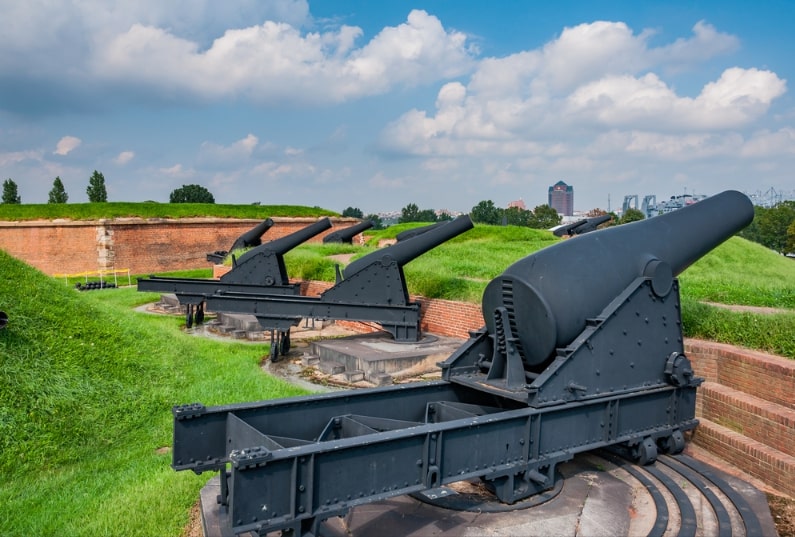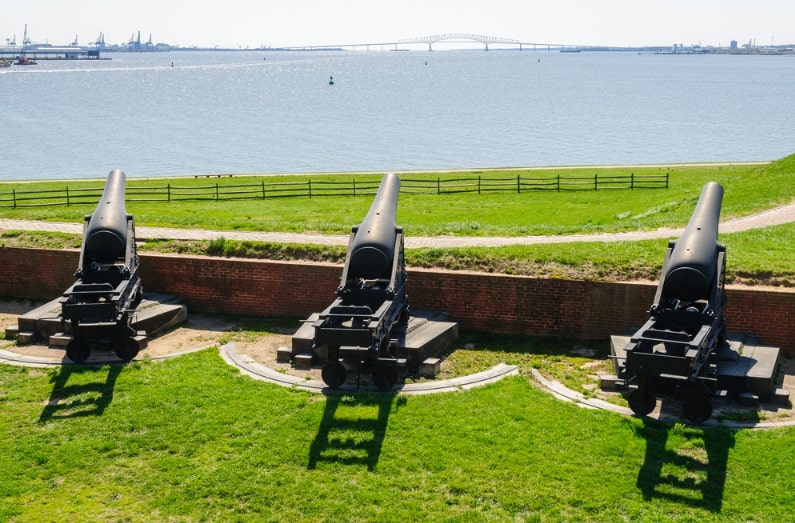Introduction: In this article – the third and final part in this series – Katie Rebecca Garner gives tips for researching your ancestor’s War of 1812 pension. Katie specializes in U.S. research for family history, enjoys writing and researching, and is developing curricula for teaching children genealogy.
In this series (see links below), we have learned about War of 1812 pensions and what information they hold for us in researching our ancestors. We will conclude this series by learning where these pension records are found.
The first step is determining if your ancestor would have been eligible for a pension. Was he of age to serve in the War of 1812? When did he die? A veteran who would have been eligible under either the Acts of 1871 or 1878 but died before then would not have a pension. If in doubt, check the pension laws because those determined who was eligible.

Photo credit: https://depositphotos.com/home.html
Records that indicate or describe military service or pensions include family stories, obituaries, newspapers commemorating anniversaries of wars or veterans’ reunions, lineage societies for the War of 1812, veteran grave markers, letters or diaries, and the 1840 census of pensioners.
When you have evidence that your ancestor served in the War of 1812, the first place to look for a pension record is an index of pensioners, such as any of the following found at FamilySearch or the National Archives and Records Administration (NARA):
- 1812 Pension Application Files
- United States Old War Pension Index
- Index Pension Application Files of Remarried Widows…War of 1812
Indexes of pensioners usually contain the unit of service or the pension application number(s). This information is needed to obtain the pension file from NARA. NARA is in the process of digitizing the War of 1812 records, including pension files.
The digitized portions of War of 1812 records are available for free. If your ancestor’s record is not online, you’ll need to request the records from NARA. Many of these are in the Adjutant General’s Office.
Other records to look for at NARA include final payments and bounty land applications. Bounty land and pension records were filed separately. If a veteran or widow had applied for both pension and bounty land, their records are most likely housed together.

Photo credit: https://depositphotos.com/home.html
In the case of multiple men with the same name, pay attention to the units and locations. Men usually enlisted near where they resided and served in a local military unit. If your ancestor moved after their military service, look for records in the state they served from.
Pension records are also helpful for FAN club research. The people who testified as witnesses would have known the pensioners well. They may have been neighbors, relatives, or fellow soldiers. Additional information about an ancestor’s military service can also be gained by looking up the pensions of fellow soldiers, especially if your ancestor didn’t qualify for a pension.
Once you have obtained your ancestor’s pension, read everything. It might help to transcribe each record. You never know which record will contain vital clues to break down your brick walls. Additionally, you may find fascinating stories about your relatives that you wouldn’t find elsewhere.
It may help to make a chart of the pension contents that lists the image number of each page, the date, and a brief description of each image. Depending on the researcher’s preference, such a chart could be made in a spreadsheet or word processing program. Typing notes about the findings in each record makes it easier to pull out the story and keep track of findings. This can also encourage the researcher to examine every image. Because pensions are rich in information, it can be easy to be overwhelmed by it all unless it’s kept organized.
Additionally, it might be helpful to have a medical dictionary handy. This will help with translating archaic medical terms into modern English. Soldiers’ pensions before 1871 include descriptions of the ailment or disability of the veteran.
To learn more about War of 1812 research, check out these books:
- History of Military Pensions by Glasson
- Military Pension Law by Rose
- Military Bounty Land by Rose
- Statutes at Large – Library of Congress
Through War of 1812 pension records, you can learn vital information about your veteran ancestor and his family. You can learn about his military service and life after the war. If his pension application was rejected, you could learn even more about your War of 1812 ancestor.
Resources:
- Anthony W. McKinney (Capt. Samuel McCormick U.S. Rangers, War of 1812), pension nos. SO11162, SC13803, WO22409, 24042; War of 1812 Pension and Bounty Land Warrant Application Files, digital images, National Archives (accessed 8 June 2023).
- https://familytreewebinars.com/webinar/revolutionary-war-series-4-of-5-records-created-by-the-revolutionary-war-after-the-war-pensions/?category=records&subcategory=military&subsubcategory=revolutionarywar
- https://familytreewebinars.com/webinar/accessing-national-archives-military-records-from-start-to-finish/?search=national%20archives
- https://www.legalgenealogist.com/2013/12/04/the-marriage-and-the-pension/
- https://www.legalgenealogist.com/2013/03/30/chasing-that-pension-file/
- https://www.familysearch.org/rootstech/session/what-does-that-really-say-records-analysis-1812-military-pension
- https://www.familysearch.org/rootstech/series/a-call-to-arms-researching-revolutionary-war-ancestors
- https://www.familysearch.org/rootstech/session/resources-for-researching-your-war-of-1812-ancestor-online-part-1
- https://www.familysearch.org/rootstech/session/resources-for-researching-your-war-of-1812-ancestor-online-part-2
- https://familytreewebinars.com/webinar/the-war-of-1812-records-preserving-the-pensions/
- https://en.wikipedia.org/wiki/War_of_1812
Explore over 330 years of newspapers and historical records in GenealogyBank. Discover your family story! Start a 7-Day Free Trial
Note on the header image: General Andrew Jackson leads his troops at the Battle of New Orleans, War of 1812, by Edward Percy Moran. Credit: Library of Congress, Prints and Photographs Division.
Related Articles:
- Genealogy Tip: Your Ancestor’s Revolutionary War Pension (part 1)
- Genealogy Tip: Your Ancestor’s Revolutionary War Pension (part 2)
- Genealogy Tip: Your Ancestor’s Revolutionary War Pension (part 3)
- Genealogy Tips: Your Ancestor’s War of 1812 Pension (part 1)
- Genealogy Tips: Your Ancestor’s War of 1812 Pension (part 2)
- Genealogy Tip: Your Ancestor’s Civil War Pension (part 1)
- Genealogy Tip: Your Ancestor’s Civil War Pension (part 2)
- Genealogy Tip: Your Ancestor’s Civil War Pension (part 3)
